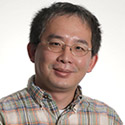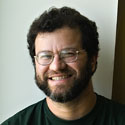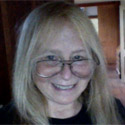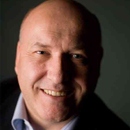Advisory Board and Editors Ecotoxicology

Fiore Capozzi
Fiore Capozzi is a researcher in Botany at the Department of Biology at Univeristy of Naples Federico II. His research interests concern: i) studies of plants as biomonitor of air quality; ii) studies on phytoremediation and on the effects of pollutants on plant organisms; iii) studies on factors affecting the growth of plants in Space environment.

Ylenia Carotenuto
Dr. Ylenia Carotenuto is a Researcher within the Department of Integrative Marine Ecology, Stazione Zoologica Anton Dohrn, Italy.
Her research interests focus on Plankton Chemical Ecology, Molecular Ecology and Next Generation Sequencing.

Wei-Chun Chin
Associate Professor, Bioengineering, University of California, Merced.

Leticia Costa-Lotufo
Dr. Costa-Lotufo is a full professor at the Department of Pharmacology, Institute of Biomedical Sciences, University of São Paulo. Her lab is focused on the discovery of new anticancer compounds from Brazilian marine biodiversity and studies on their mechanisms of action. She coordinate a multidisciplinary project to access marine microorganisms diversity and biotechnological potential along the Brazilian coast and islands. Dr. Costa-Lotufo’s activities include the supervision of undergraduate and graduate students and post-doctoral fellows. She has published book chapters, review articles and more than 230 articles in peer-reviewed journals. On 2010, Dr. Costa-Lotufo was nominated as a young scientist of the Brazilian Academy of Science (2010-2014).

Carlos Eduardo de Rezende
Dr. Carlos Eduardo de Rezende is a Full Professor in the Environmental Sciences Laboratory of the Biosciences and Biotechnology Center at the North Fluminense State University (UENF). Prof. Rezende is a senior researcher from the Brazilian National Council for Science and Technology (CNPq) (Level 1B), Scientist of Rio de Janeiro state from Foundation for Science Development (FAPERJ) and coordinator of the Future Earth Coasts in South America. Dr. Rezende has a professional experience including studies on the dynamics in continental aquatic environments (e.g.: rivers, lakes), terrestrial and coastal ecosystems (e.g., estuaries, mangroves and lagoons) and ocean. At UENF, Prof. Rezende held various institutional leadership roles (e.g., Vice-Rector, Dean of Undergraduate Studies, Center Director and Head of Environmental Sciences Laboratory), and he has participated in several boards and councils. Actually, Prof. Rezende is conducting studies on Hg and inorganic (e.g.: Al, Fe, Mn, carbonate) and organic geochemical supports (e.g. elemental and isotopic composition) as well as their ecosystem interactions; use of molecular markers (e.g., lignin phenols, carbon black) as geochemical tools to enhance the understanding on the alterations of biogeochemical cycles in the transition between terrestrial and aquatic environments.

Nicolas Desneux
Research Director at INRA, France. Main expertise is in the fields of Ecology, Community ecology, ecotoxicology and IPM

Jonathan A Eisen
Full Professor, University of California, Davis (Depts. of Medical Microbiology and Immunology and Evolution and Ecology) and Adjunct Scientist DOE Joint Genome Institute.
Obsessed with microbes, the Redsox, open science, and STEM diversity.

Alex T Ford
Alex completed an undergraduate degree in Biological Sciences (1996) at the University of Plymouth (England, UK) before embarking on a masters in Environmental Biology at Swansea University (Wales, 1997). After spending several years working as a marine benthic ecologist and taxonomist he undertook a PhD in Invertebrate Physiology and Ecotoxicology at Napier University Edinburgh (Scotland, 2001-2004). Between 2004 and 2008 he continued to be based in Scotland working as a Lecturer in Marine Biology and Ecotoxicology before moving south to the University of Portsmouth (England) where he is now a Professor of Biology. His expertise lies mainly in invertebrate biology, ecology and ecotoxicology.
He is currently course leader for an MSc entitled Applied Aquatic Biology and unit leader for courses on: Ecotoxicology and Pollution; Science and the Media; Marine Ecophysiology and Marine & Terrestrial Ecology.

Mark O. Gessner
Mark O. Gessner is an aquatic ecosystem ecologist with a particular interest in the functioning and biodiversity of lakes, streams and wetlands and how global environmental change affects these ecosystems. Currently, he holds a professorship in Applied Aquatic Science at the Berlin Institute of Technology (TU Berlin) and serves as department head at Leibniz Institute of Freshwater Ecology and Inland Fisheries (IGB), a research institute in Germany that is devoted to providing the fundamental knowledge needed to meet the challenges faced by inland waters and human societies in a rapidly changing world. Previous legs on his career path include the University of Kiel in Germany; Eawag/ETH Zurich in Switzerland; a research lab of the CNRS in France, where he completed his doctoral studies; Trent University in Ontario, Canada, as exchange student; and Stanford University in California, USA, and the Australian Rivers Institute (ARI) at Griffith University as a sabbatical visitor.

Patricia A. Gowaty
Distinguished Prof. of Ecology & Evolutionary Biology and Inst. of the Environment and Sustainability, UCLA; Research Assoc, Smithsonian Tropical Research Institute. Fellow of the AAAS, the Animal Behavior Society, the American Ornithologists' Union, the Soc.of Biology. Previous President of the Animal Behavior Society & Vice-President of the American Ornithologists Union. Awards include 3 NIH career awards, the Quest Award from the Animal Behavior Society & the Lamar Dodd Award.

Mark E Hahn
Mark Hahn is a Senior Scientist and past Chair (2011-2016) of the Biology Department at the Woods Hole Oceanographic Institution (WHOI) in Woods Hole, MA, USA. He also is a Project Leader in the Boston University Superfund Research Program and the Woods Hole Center for Oceans and Human Health. Hahn received his PhD in Environmental Toxicology from the University of Rochester School of Medicine and Dentistry. He conducted postdoctoral research at WHOI before being appointed to the scientific staff in 1992. Dr. Hahn’s research foci include: molecular mechanisms of developmental toxicity following exposure to chemicals found in the marine environment; evolution of transcription factors (e.g. AHR, NRF2, nuclear receptors) involved in the response to chemicals; mechanisms of adaptation and evolved resistance to chemicals in fish following long-term chemical exposure, and microplastics in the marine environment. Dr. Hahn is author or co-author of ~175 papers in peer-reviewed journals and books. Dr. Hahn has trained graduate and undergraduate students and postdocs has taught several courses in the WHOI/Massachusetts Institute of Technology (MIT) Joint Graduate Program in Oceanography and Oceanographic Engineering and he has served as Chair of the Joint Committee on Biological Oceanography of the WHOI/MIT Joint Program and as Education Coordinator for the WHOI Biology Department.

Thomas Hartung
Professor of Toxicology (Chair for Evidence-based Toxicology), Pharmacology, Molecular Microbiology and Immunology at Johns Hopkins Bloomberg School of Public Health, Baltimore, and University of Konstanz, Germany; Director of their Centers for Alternatives to Animal Testing (CAAT). Former Head of the European Center for the Validation of Alternative Methods (ECVAM), Ispra, Italy.

